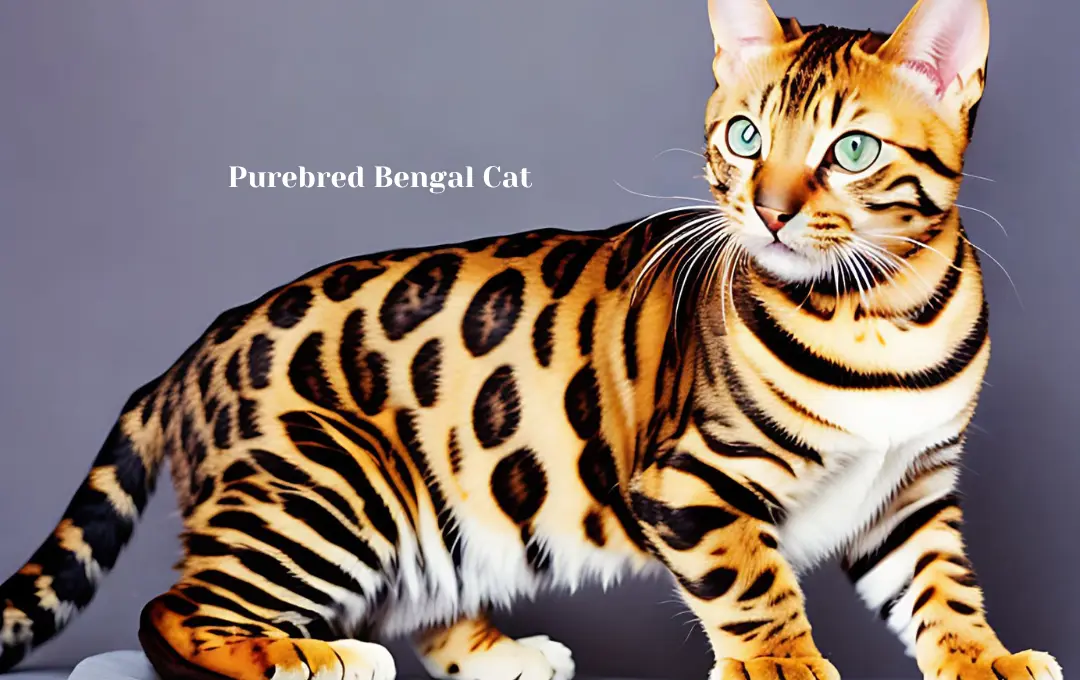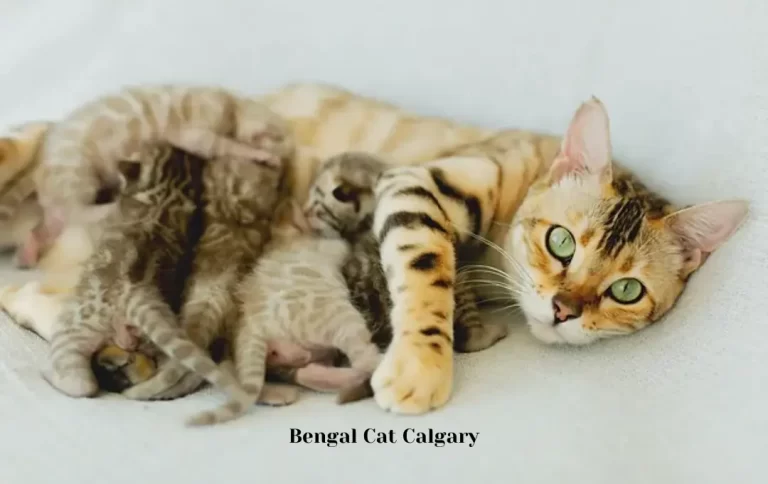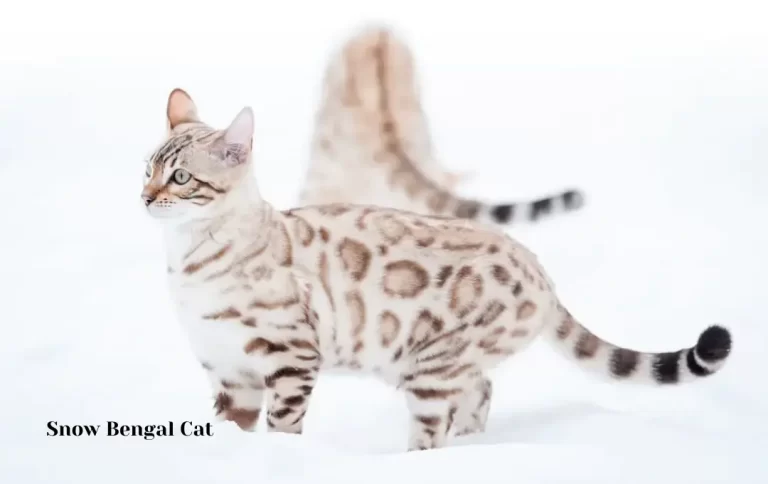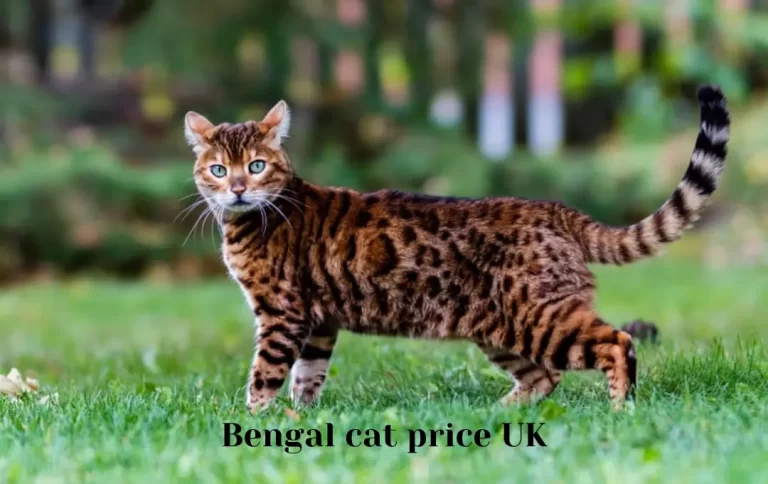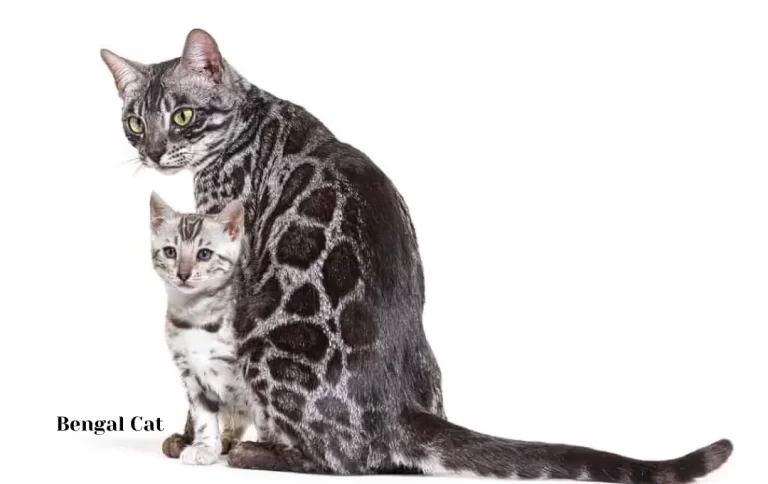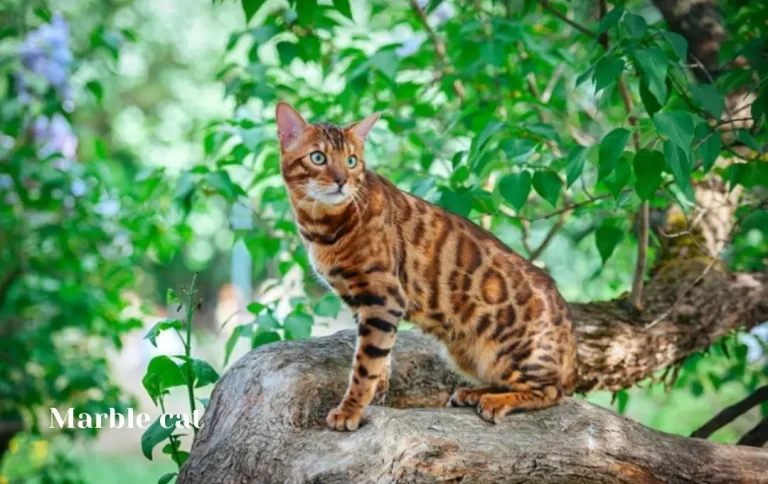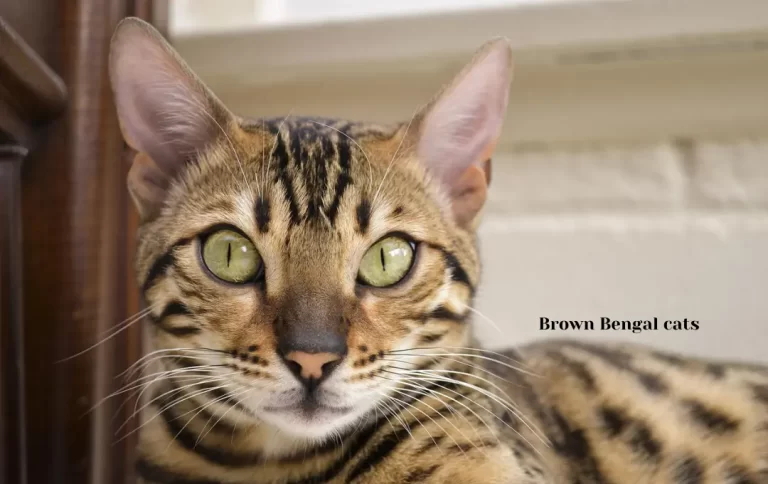Reasonable Purebred Bengal Cat Price | Bengal Cat Prices in 2023
The allure of the Bengal cat, with its striking resemblance to its wild ancestors and its playful yet affectionate disposition, has captivated the hearts of cat enthusiasts around the world. However, the path to bringing a Purebred Bengal cat into your life goes beyond just admiration; it involves a crucial financial decision. Understanding the intricacies of Purebred Bengal cat prices is not only a matter of cost but also a journey into the world of responsible pet ownership.
In this comprehensive exploration of Purebred Bengal cat price, we will delve deep into the factors that influence the cost of these magnificent feline companions. From the genetics and bloodlines that shape their unique appearances to the geography of their birthplace, numerous elements come together to determine their price tag.
Definition of Purebred Bengal Cats
Purebred Bengal cats are a carefully cultivated breed known for their strikingly beautiful coats, which resemble those of their wild ancestors, the Asian leopard cat. To be considered purebred, Bengal cats must meet specific pedigree and breeding standards set by reputable cat breed organizations. These standards ensure the preservation of the Bengal’s unique traits, such as their distinctive rosette patterns and playful yet affectionate nature.
Purpose of the Document
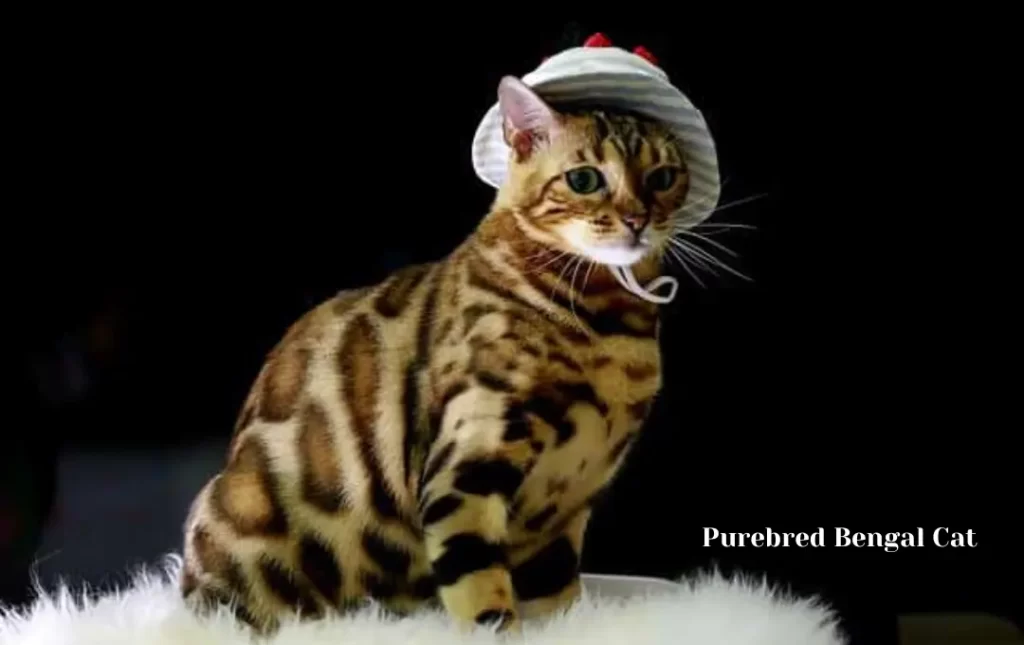
The primary purpose of this document is to serve as a valuable resource for individuals interested in purchasing or owning a Purebred Bengal cat. By delving into the intricacies of Bengal cat pricing, we aim to help potential cat owners:
- Gain a deeper understanding of the factors influencing Purebred Bengal cat prices.
- Make well-informed decisions when choosing a Bengal cat that aligns with your preferences and budget.
- Recognize the significance of acquiring a Bengal cat from a reputable breeder to ensure the cat’s health and pedigree.
Importance of Understanding Pricing
Understanding the pricing of Purebred Bengal cats is not merely about the financial aspect; it’s about ensuring a happy and healthy life for your future feline friend. The importance of comprehending Bengal cat pricing is underscored by the following factors:
- Financial Preparedness: Knowing the costs associated with purchasing and caring for a Bengal cat helps individuals prepare financially, preventing any unexpected financial strain.
- Quality Assurance: Pricing can be indicative of a cat’s quality, including its lineage, health, and adherence to breed standards. Understanding these factors can aid in selecting a cat that meets your expectations.
- Ethical Considerations: Awareness of pricing helps potential buyers distinguish between responsible breeders and unethical sellers, ultimately contributing to the well-being of these magnificent animals.
As we navigate the world of Purebred Bengal cat pricing, we’ll explore various factors influencing costs, average price ranges, and essential considerations to ensure a rewarding and harmonious relationship between you and your Bengal companion.
Factors Affecting Purebred Bengal Cat Prices
When it comes to Purebred Bengal cat pricing, several key factors come into play. Understanding these factors can help potential buyers make informed decisions and ensure they get a Bengal cat that meets their expectations. Here, we’ll delve into the various elements influencing Bengal cat prices:
Genetics and Bloodlines
Genetics and bloodlines play a pivotal role in determining the price of a Purebred Bengal cat. Bengal cats with impeccable lineage, often tracing back to well-known and award-winning ancestors, tend to command higher prices. Specific genetic traits, such as the appearance of rosettes, glittered coats, and wild-type features, can significantly affect the cat’s value. Breeders who have invested in carefully selecting and breeding cats with desirable genetics will typically charge more for their kittens.
Coat Color and Pattern
The coat color and pattern of a Bengal cat can have a substantial impact on its price. Bengal cats are known for their beautiful rosette patterns, and certain variations, such as the highly sought-after “spotted” or “marble” patterns, can be more valuable. Additionally, coat color variations like brown, snow, silver, and charcoal can influence pricing. Rare and unique coat patterns and colors are often associated with higher price tags.
Age of the Cat
The age of the Bengal cat is another pricing factor to consider. Kittens are typically more expensive than adult cats. This is because kittens are in high demand due to their adorable appearance and the opportunity for new owners to bond with them from an early age. Older cats, while equally lovable, may be priced lower due to reduced demand.
Breeder Reputation and Experience
The reputation and experience of the breeder can significantly affect the price of a Purebred Bengal cat. Established and reputable breeders who have a track record of producing healthy, well-socialized Bengal cats with strong pedigrees often charge higher prices. Buyers may be willing to pay more for the assurance of acquiring a cat from a trustworthy source.
Health and Vaccination Status
The health and vaccination status of a Bengal cat are vital considerations for buyers, and they can influence pricing. Cats that have received appropriate vaccinations, regular veterinary care, and health certifications from reputable veterinarians may be priced higher due to the assurance of good health. Buyers should always prioritize the well-being of the cat over lower prices.
Pedigree and Registration
Purebred Bengal cats with documented pedigrees and registrations from recognized cat breed organizations, such as The International Cat Association (TICA) or the Cat Fanciers’ Association (CFA), often command higher prices. These documents provide evidence of the cat’s lineage and adherence to breed standards.
Geographic Location
The location of the breeder can also affect Bengal cat prices. Prices may vary significantly from one region to another due to differences in the cost of living, demand for Bengal cats, and the availability of breeders. In some areas, where Bengal cats are rare, prices might be higher, while in regions with a higher concentration of breeders, prices could be more competitive.
Understanding these factors is essential for potential Bengal cat buyers to make informed decisions and find a cat that not only fits their budget but also aligns with their preferences and expectations.

What part of the world are Bengal cats from?
The Bengal is a relatively modern cat, developed in the 1990s in the USA by crossing the Asian Leopard Cat a small, strikingly marked wild cat from South West Asia.
Average Price Ranges
When considering the purchase of a Purebred Bengal cat, it’s important to have a rough idea of the average price ranges. Bengal cat prices can vary widely based on factors previously discussed, but the following sections provide general ranges to give you an idea of what to expect in the market:
Kitten Prices
Purebred Bengal kittens are often the most sought-after choice among cat enthusiasts. These playful, curious, and highly adorable kittens can bring joy to any household. The price of Bengal kittens can vary based on factors like genetics, bloodlines, coat quality, and breeder reputation. On average, Bengal kittens may cost anywhere from $800 to $4,000 or more. Rare coat colors and patterns, as well as exceptional pedigrees, tend to be at the higher end of this range.
Adult Cat Prices
While Bengal kittens are popular, adult Bengal cats can also make wonderful companions. Adult cats may be available for adoption or purchase from breeders. The price for an adult Bengal cat typically ranges from $500 to $2,500 or more. Older cats that are retired breeders or show cats may be priced lower than younger adults or kittens.
Show Quality vs. Pet Quality Prices
Bengal cats are often classified into two main categories: show quality and pet quality. Show quality Bengals adhere closely to breed standards and are suitable for cat shows and breeding programs. They are typically priced higher, ranging from $1,500 to $4,000 or more.
Pet quality Bengals, while still having a stunning Bengal appearance and personality, may have minor imperfections that make them unsuitable for show or breeding purposes. These cats are typically more affordable, with prices ranging from $800 to $2,500 on average. Pet quality Bengals can make excellent and loving companions for individuals and families.
Rare and Special Varieties
In addition to standard Bengal cats, there are rare and special varieties that can command premium prices. These include:
- Snow Bengals: Snow Bengals come in various shades, such as seal lynx point, seal mink, and seal sepia. Prices for snow Bengals can range from $1,000 to $5,000 or more, depending on their specific coloration and quality.
- Charcoal Bengals: Charcoal Bengals have a unique coat pattern characterized by darker and more defined rosettes. Prices for charcoal Bengals may range from $1,000 to $4,000 or higher.
- Silver Bengals: Silver Bengals have a silver background color instead of the typical brown background. Prices for silver Bengals can vary widely, starting at around $800 and going up to several thousand dollars.
- Melanistic Bengals: Melanistic Bengals have an all-black or nearly all-black coat with subtle rosettes. Due to their rarity, they can be priced between $1,500 and $5,000 or more.
Keep in mind that these price ranges are estimates and can vary based on the breeder, location, and the specific attributes of the cat. It’s crucial to do your research, ask questions, and thoroughly assess the cat’s qualities and health before making a purchase to ensure you are getting good value for your investment.
Additional Costs and Considerations
Purchasing a Purebred Bengal cat is just the beginning of your financial commitment. It’s important to be aware of the ongoing costs and considerations associated with cat ownership to provide your Bengal with a happy and healthy life. Below are some key factors to keep in mind:
Initial Purchase Price vs. Ongoing Costs
While the initial purchase price of a Purebred Bengal cat is a significant investment, it’s essential to understand that owning a cat comes with ongoing expenses. These can include:

- Food: High-quality cat food is a must for your Bengal’s health. Budget for a monthly expense for cat food, treats, and possibly special dietary needs.
- Litter and Supplies: Regularly purchasing cat litter, litter boxes, and cleaning supplies is an ongoing expense. Bengal cats are known for their love of play, so providing toys and scratching posts is essential for their mental and physical well-being.
- Grooming: Bengals generally require minimal grooming, but grooming tools and occasional grooming services can add to your expenses.
- Annual Check-ups: Routine veterinary check-ups are necessary to ensure your Bengal’s health. Budget for annual wellness exams, vaccinations, and preventive medications.
- Emergency Veterinary Care: Be prepared for unexpected medical expenses. Cats can develop illnesses or have accidents that require emergency veterinary care.
- Pet Insurance: Consider pet insurance to help cover unexpected veterinary bills. The cost of pet insurance varies based on coverage, deductibles, and the age of your Bengal.
- Boarding or Pet Sitting: If you travel frequently, you may need to budget for boarding or pet-sitting services.
Cost of Supplies and Accessories
When bringing a Bengal cat into your home, you’ll need to invest in various supplies and accessories to ensure their comfort and well-being. These may include:
- Cat Carrier: A carrier is essential for trips to the veterinarian and travel.
- Litter Box and Litter: Provide a clean and appropriately sized litter box and high-quality litter.
- Food and Water Bowls: Stainless steel or ceramic bowls are preferable for hygiene.
- Toys and Enrichment: Bengals are active cats and benefit from toys and enrichment activities to keep them mentally and physically stimulated.
- Scratching Posts: Bengals love to scratch, so provide scratching posts to prevent damage to furniture.
- Bed or Cat Tree: A comfortable bed or cat tree gives your Bengal a cozy spot to rest and observe their surroundings.
- Grooming Tools: Depending on your Bengal coat, you may need grooming tools like brushes or combs.
Veterinary Care and Health-Related Expenses
Maintaining your Bengal’s health is a top priority. Budget for the following health-related expenses:
- Vaccinations: Cats require regular vaccinations to prevent diseases. Consult with your veterinarian for a vaccination schedule.
- Preventive Medications: Flea and tick prevention and deworming are essential for your cat’s well-being.
- Spaying or Neutering: Unless you plan to breed your Bengal, spaying or neutering is recommended and comes with associated costs.
- Dental Care: Dental health is crucial. Budget for regular dental check-ups and potential dental procedures.
- Health Insurance: Consider purchasing pet health insurance to help cover medical expenses.
Cat Insurance
Cat insurance can provide peace of mind by helping to cover unexpected medical expenses. When considering cat insurance, keep the following in mind:
- Coverage Options: Different insurance plans offer varying levels of coverage. Evaluate what each plan includes and choose one that suits your needs.
- Premiums: Premiums can vary based on factors like your cat’s age, breed, and location. Compare different insurance providers for the best rates.
- Deductibles and Co-pays: Understand the deductible and co-pay requirements of your insurance plan.
- Claim Process: Familiarize yourself with the claims process and what documentation is required to make a claim.
Having a financial plan in place to cover these ongoing expenses is crucial to providing your Purebred Bengal cat with the best possible care and ensuring a long and happy life together.
Finding a Reputable Bengal Cat Breeder
Acquiring a Purebred Bengal cat from a reputable breeder is crucial to ensuring that your new feline companion is healthy, well-cared for, and comes from a responsible breeding program. To find the right breeder, consider the following steps and precautions:
Researching Breeders
Before you begin your search for a Bengal cat breeder, conduct thorough research online and offline:
- Online Research: Utilize search engines, Bengal cat breed club websites, and online forums to identify breeders in your area. Reputable breeders often have informative websites or social media profiles.
- Ask for Recommendations: Seek recommendations from Bengal cat owners, veterinarians, and local cat clubs. Personal referrals can provide valuable insights.
- Breed Club Affiliation: Check if breeders are members of recognized Bengal cat breed clubs, such as The International Bengal Cat Society (TIBCS) or The Bengal Cat Club.
Visiting Catteries
Once you’ve identified potential breeders, visiting their catteries in person is crucial to assess the living conditions and health of the cats:
- Schedule a Visit: Contact the breeder to schedule a visit to their cattery. A responsible breeder should welcome prospective buyers.
- Cattery Cleanliness: Observe the cleanliness and overall hygiene of the cattery. Cats should be kept in a clean, well-maintained environment.
- Health Checks: Ensure that the cats appear healthy, with bright eyes, clean coats, and no signs of illness. Ask about their vaccination and medical records.
- Socialization: Interact with the cats to gauge their socialization. Bengal cats should be well-socialized, friendly, and comfortable around people.
- Ask About Breeding Practices: Inquire about the breeder’s breeding practices, including the health testing and screening they perform on their breeding cats.
Questions to Ask Breeders
When communicating with breeders, ask them relevant questions to gather information about their breeding practices and the cats they offer:
- Breeding Goals: Ask about their breeding goals and objectives. Reputable breeders should have clear goals for improving the Bengal breed.
- Health Testing: Inquire about the health testing conducted on their breeding cats. Testing for common genetic disorders like PK deficiency and PRA-b should be a priority.
- Kitten Socialization: Ask how they socialize their kittens to ensure they are well-adjusted and accustomed to human interaction.
- Pedigree and Registration: Request information about the pedigree and registration of the kittens, as well as any titles or awards earned by their breeding cats.
- Kitten Care: Learn about the care and nutrition provided to kittens before they go to their new homes.
- Contract and Guarantees: Ask about the terms of the sales contract, including any health guarantees or return policies.
Warning Signs of Unethical Breeders
Be aware of red flags that may indicate an unethical breeder:
- Overbreeding: Breeders who have a large number of litters available at once may prioritize quantity over quality.
- Unwillingness to Answer Questions: Ethical breeders should be transparent and willing to answer your questions. If a breeder is evasive or uncooperative, proceed with caution.
- Inadequate Facilities: If the cattery appears dirty, overcrowded, or lacking proper care, it’s a clear warning sign.
- Lack of Health Testing: If the breeder cannot provide evidence of health testing for their breeding cats, it’s a significant concern.
- No Written Contracts: Ethical breeders typically provide written contracts outlining terms and guarantees. Lack of such documentation can be a red flag.
- Excessive Focus on Profit: Breeders primarily motivated by profit may cut corners on cat care and health testing.
Taking the time to find a reputable Bengal cat breeder is essential for the well-being of your future feline companion. Responsible breeders prioritize the health and happiness of their cats and provide a supportive environment for buyers.
Tips for Budgeting and Financial Planning
Acquiring a Purebred Bengal cat is not only an emotional investment but also a financial one. Proper budgeting and financial planning are essential to ensure you can provide the best care for your new feline companion without straining your finances. Here are some tips to help you plan financially:
Setting a Budget
Before acquiring a Bengal cat, establish a realistic budget that encompasses all the associated costs. Consider the following:
- Purchase Price: Determine the maximum amount you are willing to spend on acquiring the cat. This should cover the purchase price from a reputable breeder.
- Ongoing Expenses: Estimate monthly and annual expenses, including food, litter, grooming, and routine veterinary care. Be prepared for unforeseen medical expenses.
- Supplies and Accessories: Account for the cost of supplies and accessories such as a litter box, scratching posts, toys, and grooming tools.
- Pet Insurance: Research pet insurance options and include the premium in your budget if you decide to purchase coverage.
- Emergency Fund: Set aside a small emergency fund for unexpected cat-related expenses.
- Boarding or Pet Sitting: If you travel frequently, budget for boarding or pet-sitting services.
- Training and Behavioral Classes: Consider setting aside funds for training or behavioral classes, especially if your Bengal cat needs extra attention.
Saving Strategies
Once you’ve determined your budget, consider these saving strategies to make your financial planning more manageable:
- Start Early: If you’re planning to get a Bengal cat in the future, start saving now. The earlier you begin, the more you’ll have saved by the time you bring your cat home.
- Automate Savings: Set up automatic transfers to a dedicated pet fund each month. This ensures that you consistently save for your Bengal cat’s needs.
- Cut Unnecessary Expenses: Evaluate your current spending habits and identify areas where you can cut back to allocate more funds to your pet budget.
- Pet-Specific Savings Accounts: Some banks offer dedicated savings accounts for pet expenses. These can help you keep your pet-related funds separate and organized.
- Consider a Pet Credit Card: Some credit cards offer rewards or cashback specifically for pet-related expenses. Use these cards wisely to earn rewards while covering your cat’s needs.
Financing Options
In addition to budgeting and saving, explore financing options to help cover the initial costs of acquiring a Purebred Bengal cat:
- Pet Loans: Some financial institutions offer pet loans, which are personal loans designed to cover pet-related expenses. Be sure to compare interest rates and terms.
- Credit Cards: Using a credit card for your initial purchase and expenses is an option, but be mindful of high interest rates if you carry a balance.
- Payment Plans: Some breeders offer payment plans for the purchase of Bengal kittens. Inquire with the breeder if this option is available and what the terms are.
- Pet Insurance: While pet insurance primarily covers medical expenses, it can be a financial safeguard in case of unexpected veterinary bills.
- Crowdfunding: In some cases, people turn to crowdfunding platforms to raise funds for acquiring a Bengal cat. However, this option may not be suitable for everyone.
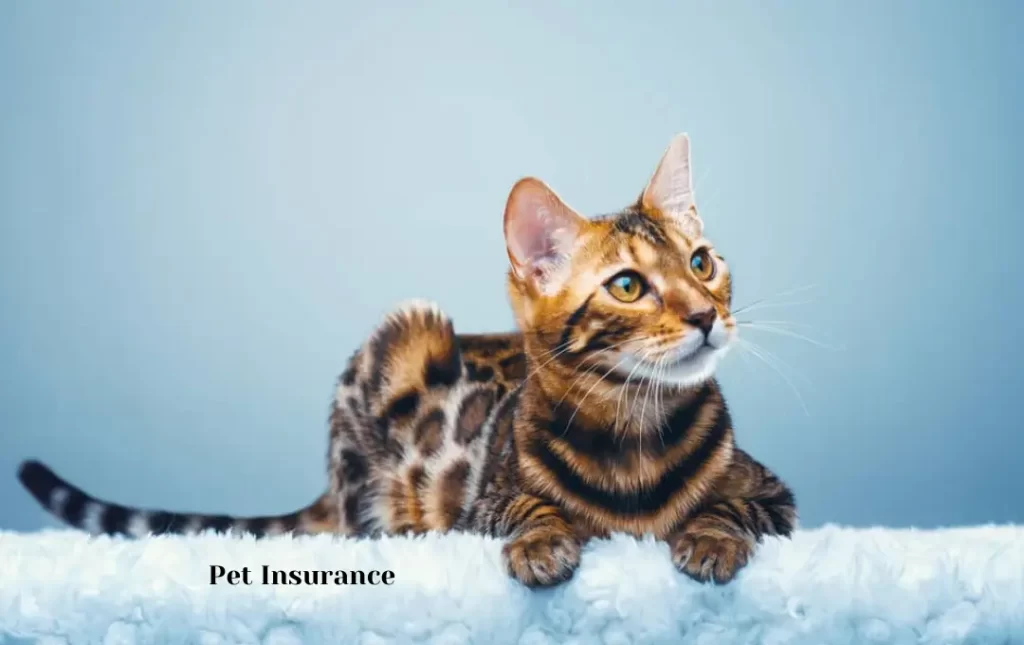
Remember that responsible pet ownership includes being financially prepared for your Bengal cat’s needs throughout their lifetime. Proper budgeting and financial planning will not only benefit your cat but also provide you with peace of mind knowing you can provide the best care possible.
frequently asked question
Conclusion
In conclusion, the pricing of Purebred Bengal cats is a multifaceted topic influenced by various factors, making it essential for potential owners to conduct thorough research and financial planning. Understanding the dynamics of Bengal cat pricing is not only about budgeting for the initial purchase but also about preparing for ongoing expenses associated with their care and well-being.
Factors like genetics, coat color and pattern, age, breeder reputation, health, pedigree, and geographic location all play a role in determining Bengal cat prices. Buyers should carefully consider their preferences and budget constraints when choosing a Bengal cat that aligns with their expectations.

